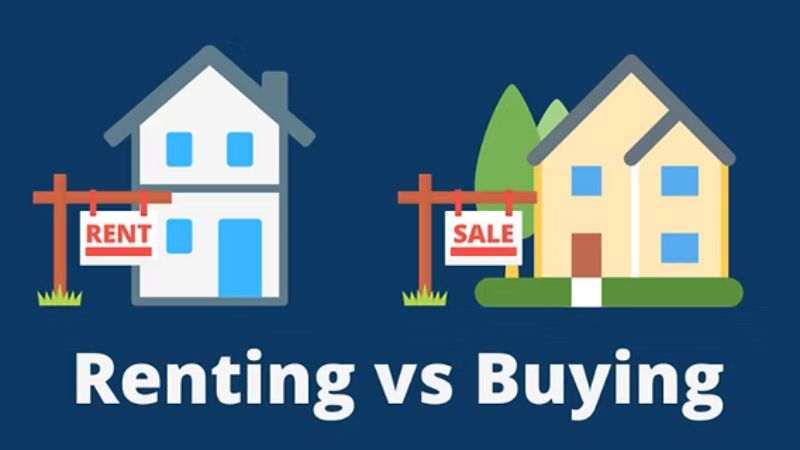Key Takeaways
- Renting provides enhanced flexibility and less responsibility for maintenance, but doesn’t accumulate equity.
- Buying a home serves as a long-term investment, potentially offering stability and tax advantages.
- Your financial situation, lifestyle preferences, and real estate market conditions are crucial when making this decision.
Deciding whether to rent or buy a home is one of the most important financial and lifestyle choices you can make. With the right approach, this decision can set the stage for your long-term happiness and stability. For those navigating this crossroad, guidance from Newtown CT real estate experts Around Town Real Estate can make all the difference, ensuring your unique needs and local market conditions are kept front and center. The right choice depends on factors like your finances, future goals, and the housing market. Understanding commitments, flexibility, and investment potential clarifies your choice. Renting suits those valuing mobility and simplicity, while buying offers stability and equity. Consider trade-offs like costs, maintenance, and personalization. Stay informed about market trends and the financial impact of your decision, which varies by neighborhood and income. Balancing practicality and personal preferences is crucial. Whether a first-time buyer or experienced mover, knowing the pros and cons of renting and owning helps you make a confident decision now and later.
Pros and Cons of Renting
Advantages of Renting
Renting is a popular choice among those prioritizing flexibility. Lease agreements make it easy to move for work, education, or personal reasons. You can explore different neighborhoods with relatively low financial risk and avoid the stress associated with selling a property when it’s time to relocate. Maintenance and repair responsibilities typically fall to the landlord, limiting surprise out-of-pocket expenses and time spent on home upkeep. You also don’t need to worry about declining home values or fluctuating interest rates affecting your living situation.
Drawbacks of Renting
Despite these conveniences, renting has some important limitations. Your monthly payments do not contribute to property ownership or equity building. Rent prices often increase with each renewal, sometimes outpacing wage growth. Additionally, rental agreements may come with restrictions—renovations, painting, or even owning pets could be off limits, making it harder to personalize your living space truly. And while you’re protected from property taxes, you have no control over the value appreciation that benefits homeowners.

Pros and Cons of Buying
Advantages of Buying
Purchasing a home is a powerful way to invest in your future. Monthly mortgage payments act as a form of forced savings, contributing to your equity. Over time, real estate generally appreciates, creating a solid foundation for financial growth and stability. Homeowners have the freedom to renovate or modify their property, making it truly theirs. There are also unique tax benefits—homeowners can often deduct mortgage interest and property taxes, making ownership less expensive than it initially appears, especially over the long term. For many, homeownership means predictability and roots in a community.
Drawbacks of Buying
However, buying a house demands substantial up-front investment—a down payment, closing costs, and miscellaneous fees. Ongoing expenses add up, too, from property taxes and insurance to regular maintenance and unexpected repairs. Homeownership also demands a certain degree of permanency; selling and moving can be slow, expensive, and unpredictable. If local property values decline, you may lose money on your investment.
Financial Considerations
Careful evaluation of your current finances is essential when weighing the buy-or-rent decision. Begin with your income stability and prospects: will you be able to afford a mortgage if interest rates rise comfortably? Is your credit score strong enough to secure favorable loan terms? Savings are also vital, both for a down payment and to cover ongoing or unforeseen costs. Use online calculators—which The New York Times provides an excellent version of (source)—to compare the long-term costs and benefits of each route in your area. Remember to factor in local property taxes, costs of repairs, homeowner’s insurance, and the impact of inflation.
Lifestyle Factors
Your stage of life and personal goals should shape your decision if you foresee significant life changes—such as career moves, changes in family size, or the desire for travel—renting grants freedom without the heavy responsibilities of homeownership. On the other hand, if you’re looking for stability and a sense of belonging, or plan to stay put for several years, buying can be a cornerstone of long-term well-being. Your personal comfort with risk, responsibility, and commitment will ultimately play a huge role in determining which path fits best.
Market Trends
Housing markets fluctuate significantly across cities and states, sometimes making one option clearly more favorable. In certain areas, such as Richmond, Virginia, renters can save over $1,100 each month compared to first-time buyers. Mortgage rates, home prices, inventory levels, and local rents should all be monitored carefully, as these factors shift regularly. Even small changes in interest rates can have a major impact on buying power and affordability. Always take time to research local conditions so you can time your entry into the market wisely.
Conclusion
There is no universal answer to the rent-versus-buy dilemma. Your choice should align with your financial stability, lifestyle ambitions, and the current real estate market. By weighing all the options, consulting reliable sources, and speaking with professionals, you’ll position yourself for success—whether you find the perfect rental or invest in a home you love for years to come.



